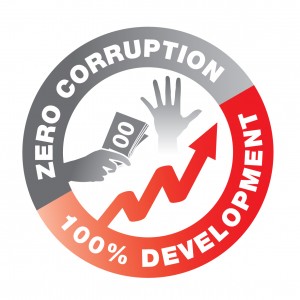Update Winter 2013
Season's Greetings from GoodCorporation
 It has been another busy year, for which we are grateful. We have conducted over 40 assessments in 21 countries on six continents and our business is continuing to grow. Consequently, we are recruiting further senior support to lead some of our assessment projects.
It has been another busy year, for which we are grateful. We have conducted over 40 assessments in 21 countries on six continents and our business is continuing to grow. Consequently, we are recruiting further senior support to lead some of our assessment projects.
Much of this work has been in the area of anti-corruption compliance, which continues to be a focus for many companies. We are seeing many new initiatives in this area, some of which we share below.
From all of us at GoodCorporation, have a happy, successful and prosperous 2014.
GoodCorporation joins BSI Consultancy Programme to support BS10500
GoodCorporation is delighted to announce that it has been invited by BSI to join its Associate Consultancy Programme as one of only two consultants so far working with BSI on the BS10500 anti-corruption standard.
GoodCorporation was appointed on the strength of its expertise in assessing and developing anti-corruption programmes. Much of this work is based on the GoodCorporation Framework on Bribery and Corruption which was felt by BSI to map closely with BS10500.
International Anti-Corruption Day - is collective action the way forward?
Corruption remains a significant obstacle to economic and social development. According to the World Bank, every year $1 trillion is paid in bribes, while an estimated $2.6 trillion is stolen annually through corruption – a sum equivalent to more than five per cent of global GDP.
While the UN urges governments and businesses to take action, we are seeing an increasing amount of anti-corruption activity in the corporate world.
At our Business Ethics Debates we hear a lot about the difficulties of putting some of this into practice in some of the world’s more ethically challenging locations. What has been interesting to note this year is the development of collective action in several of the countries where we have conducted assessments.
In Senegal, Tanzania, Egypt and Kenya we have seen groups of businesses collaborating to develop effective solutions that support a zero tolerance towards corruption. We support these initiatives and encourage businesses to spread this best practice in other areas of their operation.
The Banknote Ethics Initiative (BnEI), for which we have developed the industry scheme, is a good example of how an industry can work together to reduce corruption. Similar collective initiatives are to be supported and we are keen to share our expertise with other sectors thinking along these lines.
Business Ethics Debates: Prosecution and enforcement of the UK Bribery Act
We were delighted that David Green CBQC, Director of the Serious Fraud Office (SFO), was able to lead our Autumn Business Ethics Debate on the UK Bribery Act. The debate focused on prosecution and enforcement and started with a reminder of the starting point for any action. The SFO will always apply the Full Code Test for Crown Prosecutors before any proceedings commence, ensuring that there is sufficient evidence to prosecute and that prosecution is in the public interest.
The debate looked at the moral imperative for reporting and the case for risk management. However, many were concerned that negative publicity, reputational damage, impact on share price and the ensuing process would deter such action.
Others, however, agreed with David Green that there is a moral case for self reporting and that it is indeed a risk-management exercise; better to be transparent and come forward rather than hide and be found out.
Adequate procedures were also discussed in detail and again the room was divided. Some felt that it still wasn’t clear what adequate procedures were and that even their advisers were unsure. Others stated that good professional advisers made the situation very clear and gave practical advice.
Read the full debate summary here.
In Brief...
GoodCorporation continues to build its global expertise
GoodCorporation continues to strengthen its international expertise. From Tanzania to Trinidad and Melbourne to Mexico, in the last three months we have worked in 11 countries on five continents.
This scale of international work gives us a unique perspective on how attitudes towards business ethics vary across the globe. Having an in depth understanding of this can be vitally important for businesses moving into new markets. Particularly those in challenging sectors such as extractives or defence.
We have a network of international consultants, experienced in different markets and sectors and can help businesses run, manage and measure how effectively their global compliance is working.
Details of our compliance support services can be found on our website.
What is Adequate?
GoodCorporation is preparing a white paper on anti-corruption compliance looking at best and worst practices and where businesses are most vulnerable under current legislation.
Due to be published in the New Year, the report will show where companies are succeeding and where they are struggling to put adequate procedures in place.
The practicalities of managing corruption risks in the extractives industry
GoodCorporation asked Robert Welch from Kazakhmys to lead our November Business Ethics Debate on this challenging subject.
Fraud and corruption have long been problems in this sector. It is labour intensive, involves high-value commodities, is often based in remote parts of the world where there is inherent corruption and involves close links with government officials.
Identifying and managing these risks is essential if fines and reputational damage are to be avoided. However, developing the blueprint is far easier than the implementation.
The discussion focused on the five biggest challenges:
- Facilitation Payments
- Due Diligence
- Community Projects
- Procurement
- Licences and Permits
The debate highlighted the risks posed by each of these challenges. Experiences and best practice were shared.
Read the full debate summary
The business of human rights
In November, we were invited by the Shift Project to join a panel of experts to discuss the implementation of the UN Guiding Principles on Business and Human Rights. The focus of the consultation was the development of public standards for reporting against the Guiding Principles.GoodCorporation introduced the session on internal audit and assurance, highlighting the need for qualitative and quantitative reporting based on consultation with all stakeholder groups. This should include governments, international agencies, NGOs and Civil Society Organisations.GoodCorporation has been working on human rights focused assessments for a number of years. Much of this uses our Human Rights Framework designed to measure the management practices in place that demonstrate a responsible approach to respecting human rights.



